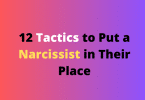Recognizing that you have a problem with abuse and seeking help is an important first step toward stopping abusive behavior in your relationships. Here are some steps you can take:
1. Acknowledge your behavior:
The first step in stopping abuse is recognizing and acknowledging that you have a problem. It’s important to take responsibility for your actions and understand that you have control over your behavior.
That’s correct! Acknowledging your behavior is a crucial step in stopping abuse. It can be difficult to admit to yourself that you have a problem with abusive behavior, but it’s important to take responsibility for your actions and understand that you have the power to change. By acknowledging your behavior, you are taking the first step towards creating healthier relationships and a better future for yourself and those around you.
2. Seek professional help:
Consider seeking the help of a therapist or counselor who specializes in working with individuals who have a history of abusive behavior. They can provide you with the tools and support you need to stop your abusive behavior.
Seeking professional help from a therapist or counselor who specializes in working with individuals who have a history of abusive behavior can be very helpful. A therapist can provide you with a safe space to explore the underlying causes of your abusive behavior, develop healthy coping mechanisms, and learn new communication and relationship skills. They can also help you identify and address any underlying mental health issues that may be contributing to your abusive behavior, such as depression or anxiety. By working with a therapist, you can gain valuable insight into your behavior and develop the tools and support you need to stop your abusive behavior and build healthier relationships.
3. Learn healthy communication skills:
Abuse often stems from a lack of healthy communication skills. Learning to communicate effectively and respectfully can help you avoid abusive behavior in the future. learning healthy communication skills is essential in avoiding abusive behavior in relationships. Many times, abuse arises from a lack of effective communication skills, which can lead to misunderstandings, frustration, and resentment. By learning healthy communication skills, you can better express your thoughts, feelings, and needs in a way that is respectful, honest, and productive.
Healthy communication involves active listening, empathy, and expressing yourself in a non-judgmental and non-threatening manner. You can practice healthy communication by avoiding blaming language, staying focused on the present, and expressing yourself in a calm and respectful tone. By using healthy communication techniques, you can build stronger, more respectful relationships and avoid abusive behavior in the future. A therapist or counselor can also provide guidance on developing healthy communication skills.
4. Practice self-care:
It’s important to take care of yourself and your emotional needs. Engage in activities that bring you joy and make you feel good about yourself. practicing self-care is an important step in stopping abusive behavior in relationships. Self-care involves taking care of your physical, emotional, and mental well-being, and engaging in activities that bring you joy and make you feel good about yourself. By taking care of yourself, you can reduce stress and improve your overall well-being, which can help you to better manage your emotions and avoid abusive behavior in relationships.
Self-care can involve a variety of activities, such as exercise, meditation, spending time in nature, socializing with friends and family, pursuing hobbies and interests, or seeking therapy or counseling. It’s important to identify the self-care activities that work best for you and make them a regular part of your routine. By practicing self-care, you can improve your emotional and mental health, build self-confidence, and develop healthier relationships.
5. Identify triggers:
Identify the situations or circumstances that trigger your abusive behavior. Once you have identified them, you can work on strategies to manage your emotions and behavior in those situations. identifying your triggers is an important step in stopping abusive behavior in relationships. Triggers are situations or circumstances that can cause you to feel overwhelmed, stressed, or frustrated, which can lead to abusive behavior. By identifying your triggers, you can become more aware of your emotions and develop strategies to manage your behavior in those situations.
To identify your triggers, you can reflect on past situations where you engaged in abusive behavior and consider what may have led to those situations. You can also pay attention to your thoughts and emotions in the present moment and identify situations where you feel particularly stressed, anxious, or overwhelmed.
Once you have identified your triggers, you can work on developing strategies to manage your emotions and behavior in those situations. This may involve taking a break, practicing deep breathing or meditation, engaging in a self-care activity, or seeking support from a friend or therapist. By learning to manage your emotions and behavior in triggering situations, you can avoid engaging in abusive behavior and build healthier relationships.
6. Take accountability:
It is important to recognize the impact of your actions on others and take accountability for them. This involves apologizing and making amends for the harm you have caused. taking accountability for your actions is an important step in stopping abusive behavior in relationships. It involves recognizing the impact of your actions on others and taking responsibility for them.
Taking accountability may involve apologizing to the person you have harmed and making amends for the harm you have caused. It’s important to offer a sincere apology and take steps to make things right. This may involve making changes in your behavior, seeking professional help, or working to rebuild trust in the relationship.
It’s important to keep in mind that taking accountability is not a one-time event, but an ongoing process of self-reflection, growth, and improvement. It requires a willingness to listen to feedback, learn from your mistakes, and take action to change your behavior.
By taking accountability for your actions, you can demonstrate to others that you are committed to building healthier relationships and creating a better future for yourself and those around you.
7. Be patient and persistent:
Changing abusive behavior takes time and effort. It’s important to be patient with yourself and keep working towards healthy and respectful relationships. being patient and persistent is an important step in stopping abusive behavior in relationships. Changing abusive behavior can be a difficult and challenging process, and it’s important to give yourself time and space to work through the issues that led to the behavior in the first place.
It’s also important to be persistent and committed to making positive changes in your behavior. This may involve seeking professional help, practicing healthy communication skills, engaging in self-care, and working to identify and manage your triggers.
It’s important to keep in mind that changing abusive behavior is not a quick fix, but an ongoing process of growth and self-improvement. It may take time and effort to break old patterns and develop new, healthier habits. But with persistence, commitment, and a willingness to learn and grow, it is possible to create healthier and more respectful relationships.
Remember to be kind to yourself and celebrate small victories along the way. By being patient and persistent, you can create a better future for yourself and those around you.







Leave a Comment